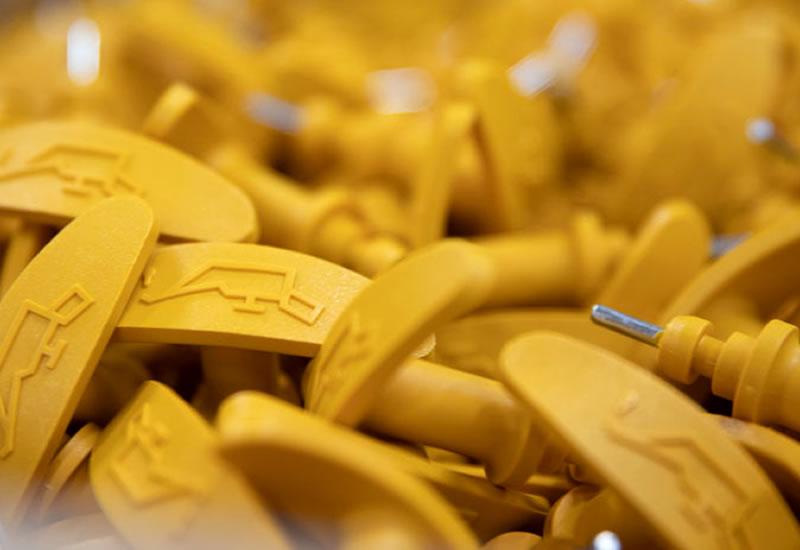Stephens Plastics: Trusted Supplier of Automotive Injection Moulded Components
In the world of automotive injection moulding, quality, consistency, and scale are non-negotiable. At Stephens Plastics, we’ve partnered with OEMs and Tier 1 suppliers across the UK for decades. Our precision-engineered plastic components support everything from performance to passenger safety.
As the automotive sector evolves to meet stricter emissions, cost-efficiency, and weight targets, injection moulding has emerged as a cornerstone of modern car manufacturing.
In this blog, we explore how injection moulded plastics are used in vehicle design and production – and why Stephens Plastics is your ideal partner for scalable, automotive-grade components.
Why Injection Moulding Is Critical to the Automotive Sector
Automotive manufacturers demand parts that are:
- Lightweight.
- Durable.
- Heat- and chemical-resistant.
- Aesthetically versatile.
- Cost-effective at scale.
Plastic injection moulding delivers on all these fronts. It enables high-volume production of complex parts, offering reliability and tight tolerances – perfect for both visible and hidden vehicle components.
Key Areas Where Automotive Injection Moulding Is Used
1. Interior Trim and Panels
Interior aesthetics are vital to brand perception. Injection moulded plastics are used to manufacture:
- Dashboard panels.
- Centre consoles.
- Glove boxes.
- Air vents.
- Seat backs and surrounds.
These parts must not only look appealing but also meet UV, flame, and abrasion resistance standards. Plastics like ABS, PC/ABS, and PP are commonly used.
2. Exterior Fittings
Plastic moulding is crucial for creating aerodynamic, lightweight exterior features such as:
- Mirror housings.
- Bumper brackets.
- Grilles.
- Cowl vents.
Using thermoplastics in these applications improves fuel economy and corrosion resistance while supporting sleek designs.
3. Under-the-Bonnet Components
The engine bay environment demands materials that can withstand heat, oil, and vibration. Injection moulded parts include:
- Fluid reservoirs.
- Cable harness clips.
- Sensor housings.
- Fuse boxes.
Nylon and PBT are often chosen for their thermal stability and resistance to automotive fluids.
4. Injection Moulded Washers and Fasteners
Often overlooked but absolutely critical, injection moulded washers offer a lightweight, non-corrosive alternative to metal. They are used for:
- Mounting brackets.
- Fluid line spacers.
- Electrical component separation.
Available in nylon, PP, and acetal, these washers contribute to both weight reduction and insulation in the vehicle assembly.
5. Lighting Assemblies
Plastics allow intricate and precise production of components used in:
- Headlamp housings.
- Tail light lenses.
- Reflector mounts.
Polycarbonate and acrylic materials offer clarity, impact resistance, and design flexibility, making them ideal for automotive lighting.
6. HVAC Systems and Air Flow Management
Modern heating and cooling systems depend on precision moulded parts. These include:
- Ductwork.
- Valve housings.
- Fan blades.
- Clips and mounts.
The ability to mould tight-tolerance components ensures optimal airflow and quiet operation.
7. Electrical and Electronic Enclosures
The growing electrification of vehicles demands robust plastic enclosures to protect sensitive systems. Injection moulded parts used here include:
- ECU housings.
- Sensor mounts.
- Switch bases.
- Connector covers.
These parts must pass thermal cycling, vibration, and sealing tests.
Materials Used in Automotive Injection Moulding
Different applications require tailored materials. Common options include:
- ABS: Great for interiors and non-structural components.
- Nylon (PA): Ideal for mechanical parts and high heat zones.
- PBT: Excellent for electrical systems.
- Polycarbonate (PC): Clear, strong, and used in lighting.
- Polypropylene (PP): Flexible and chemical resistant.
We work closely with clients to specify polymers that meet both functional and compliance needs.
Why OEMs Trust Injection Moulded Plastic Components
1. Lower Vehicle Weight
Replacing metal with plastics reduces vehicle mass, improving fuel efficiency and meeting sustainability targets.
2. Lower Costs at Scale
Injection moulding delivers exceptional unit costs in high volumes. It also reduces post-processing and assembly time.
3. Improved Design Freedom
Complex geometries, overmoulding, and aesthetic finishes can all be achieved in a single step with modern moulding techniques.
4. Compliance and Traceability
Automotive – grade moulded parts meet ISO/TS and IATF standards and allow full traceability – key for OEM partnerships.
Stephens Plastics: Driving Innovation in Automotive Plastics
With over three decades of experience, Stephens Plastics supports leading automotive brands with:
- High-volume component supply.
- Design and material consultation.
- Prototype and pilot tooling.
- Full quality and compliance documentation.
We ensure that every part we deliver supports vehicle performance, longevity, and production efficiency.
FAQs on Automotive Injection Moulding
What’s the typical production volume for automotive plastic parts?
Volumes can range from 10,000 units for niche models to over a million for mainstream applications.
Are moulded plastics safe for critical vehicle systems?
Yes. When engineered correctly, plastic parts can outperform metal in vibration damping, corrosion resistance, and cost.
What standards do automotive plastics need to meet?
Typical standards include ISO 9001, IATF 16949, and specific OEM validation protocols including thermal and vibration testing.
Can Stephens Plastics produce parts with inserts or overmoulding?
Absolutely. We offer insert moulding, overmoulding, and multi-shot moulding to meet advanced design needs.
Conclusion: Trust Stephens Plastics for Automotive Moulding Excellence
From injection moulded washers to complex housings and interior fittings, plastic injection moulding powers modern automotive design. At Stephens Plastics, we bring deep industry knowledge, precise tooling, and full-scale manufacturing to every project.
We’re not just a supplier – we’re a partner in innovation, helping OEMs and automotive brands reduce costs, weight, and complexity.
Contact Stephens Plastics Today
Take the next step in quality automotive manufacturing:
Email: sales@stephensplasticmouldings.co.uk
Phone: 0121 544 5808





